| Sub organizations | IDEAS LIST | Student guides |
NumFOCUS will be applying again as an umbrella mentoring organization for Google Summer of Code 2020. NumFOCUS supports and promotes world-class, innovative, open source scientific software.
NumFOCUS is committed to promoting and sustaining a professional and ethical community. Our Code of Conduct is our effort to uphold these values and it provides a guideline and some of the tools and resources necessary to achieve this.
Google Summer of Code is an annual open source internship program sponsored by Google. This repository contains information specific to NumFOCUS' participation in GSoC. For general information about the competition, including this year's application timeline and key phases involved, please see the GSoC website
This Git repository stores information about NumFOCUS' application for Google Summer of Code in the current and previous years.
Table of Contents
- Students
- Sub Organizations
- Organizations Confirmed Under NumFOCUS Umbrella
- NumFOCUS Projects
- About GSoC
NumFOCUS is participating as a umbrella organization. This means that you will need to identify a specific project to apply to under the NumFOCUS umbrella. (Projects are listed below.)
Read this document to learn how to apply for the GSoC program with NumFOCUS. Please also check out our ideas list.
For any questions, please open an issue in our issue tracker or send a email to gsoc@numfocus.org, our mailing list address. Please also consider subscribing to the mailing list at https://groups.google.com/a/numfocus.org/forum/#!forum/gsoc.
If you want to participate as a sub organization of NumFOCUS please read this guide.
In alphabetic order.

|
AiiDA is a python framework for managing computational science workflows, with roots in computational materials science. It helps researchers manage large numbers of simulations (1k, 10k, 100k, ...) and complex workflows involving multiple executables. At the same time, it records the provenance of the entire simulation pipeline with the aim to make it fully reproducible. |
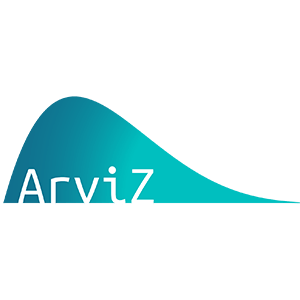
|
ArviZ is a Python package for exploratory analysis of Bayesian models. Includes functions for posterior analysis, sample diagnostics, model checking, and comparison. The goal is to provide backend-agnostic tools for diagnostics and visualizations of Bayesian inference in Python, by first converting inference data into xarray objects. |

|
Bokeh is an interactive visualization library for modern web browsers. It provides elegant, concise construction of versatile graphics, and affords high-performance interactivity over large or streaming datasets. Bokeh can help anyone who would like to quickly and easily make interactive plots, dashboards, and data applications. Website (docs) | Ideas List | Contact (Discourse) | Source Code |

|
Cantera is a library to solve problems involving thermodynamics, chemical kinetics, and transport. |

|
Clawpack (“Conservation Laws Package”) is a collection of finite volume methods for linear and nonlinear hyperbolic systems of conservation laws. Website | Ideas List | Slack | Source Code |
|
|
A community led collection of recipes, build infrastructure and distributions for the conda package manager. Website | Ideas List | Gitter | Source Code |

|
Colour is an open-source Python package providing a comprehensive number of algorithms and datasets for colour science. It is freely available under the New BSD License terms. Website | Ideas List | Contact | Source Code |
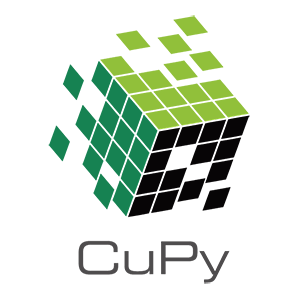
|
CuPy is an open-source matrix library accelerated with NVIDIA CUDA. It also uses CUDA-related libraries including cuBLAS, cuDNN, cuRand, cuSolver, cuSPARSE, cuFFT and NCCL to make full use of the GPU architecture. Website | Ideas List | Contact | Source Code |

|
The Data Retriever is a package manager for data. It downloads, cleans, and stores publicly available data, so that analysts spend less time cleaning and managing data, and more time analyzing it. |

|
The aim of the Econ-ARK project is to make it easier for social scientists to do ‘structural modeling’ of economic choice behavior by providing a well-documented, open source codebase containing the core techniques in a way that can be relatively easily adapted to address many different questions in both macro- and microeconomics. ‘Structural’ modeling of economic choices aims to identify the logic or reasons behind observed behavior, rather than just describing that behavior statistically. |
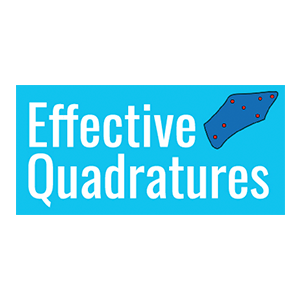
|
Effective Quadratures is an open-source library for uncertainty quantification, machine learning, optimisation, numerical integration and dimension reduction – all using orthogonal polynomials. |

|
JuMP is a modeling language and supporting packages for mathematical optimization in Julia. JuMP makes it easy to formulate and solve linear programming, semidefinite programming, integer programming, convex optimization, constrained nonlinear optimization, and related classes of optimization problems. Website | Developers chat on Gitter | Ideas Page | Source Code |
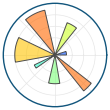
|
Matplotlib is a comprehensive library for creating static, animated, and interactive visualizations in Python.
Website | Gitter | Discourse | Ideas Page | Source Code |

|
The nteract open source organization is committed to building the future of interactive computing. We are committed to:
To fulfill our mission, the nteract open source organization produces SDKs, applications, libraries, and CLIs to help individuals leverage the full power of Jupyter and other interactive computing environments. Website | Contact (Slack Community) | Ideas Page | Source Code (Core SDK and Applications) |

|
Optuna is an open source hyperparameter optimization framework to automate hyperparameter search. Optuna provides eager search spaces for automated search for optimal hyperparameters using Python conditionals, loops, and syntax, state-of-the-art algorithms to efficiently search large spaces and prune unpromising trials for faster results, and easy parallelization for hyperparameter searches over multiple threads or processes without modifying code. Website | Developers chat on Gitter | Ideas Page | Source Code |

|
pvlib python provides a set of functions and classes for simulating the performance of photovoltaic energy systems. |

|
PyMC3 is a python module for Bayesian statistical modeling and model fitting which focuses on advanced Markov chain Monte Carlo and variational fitting algorithms. Its flexibility and extensibility make it applicable to a large suite of problems. |

|
PySAL is an open source cross-platform library for geospatial data science. It supports many different areas of statistics and geographical analyses, such as the detection of spatial clusters, hotspots, and outliers; the construction of graphs from geographic data; Bayesian and Maximum Likelihood spatial regression and statistical modelling for geographical networks; spatial econometrics; space-time Markov modelling; and distribution dynamics for segregation and inequality. Website | Contact (Gitter chat room) | Ideas Page | Source Code |
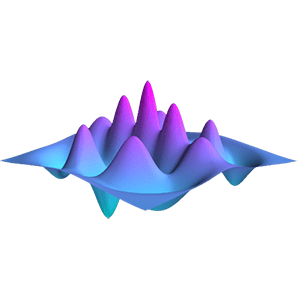
|
QuTiP is a software for simulating quantum systems. QuTiP aims to provide tools for user-friendly and efficient numerical simulations of open quantum systems. It can be used to simulate a wide range of physical phenomenon in areas such as quantum optics, trapped ions, superconducting circuits and quantum nanomechanical resonators. In addition, it contains a number of other modules to simplify the numerical simulation and study of many topics in quantum physics such as quantum optimal control, quantum information, and computing. Website | Gitter | Ideas Page | Source Code |
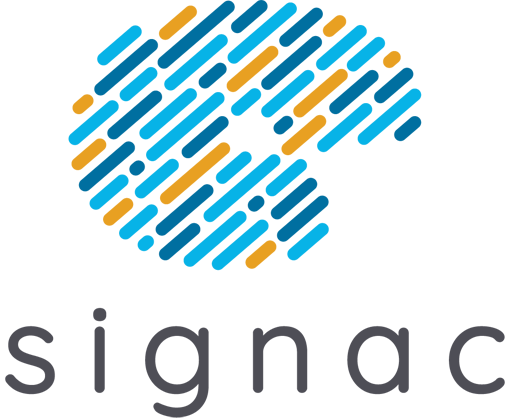
|
The signac framework is a complete solution for managing workflows operating on file-based data designed to scale to HPC systems. Website | Gitter | Ideas Page | Source Code |
Not all NumFOCUS organizations participate under our umbrella. These lists show which organizations are participating with GSoC and where you can find information how to work with them.
| Project | Status | Ideas Pages |
|---|---|---|
| AstroPy | Unknown | |
| Bokeh | Applying under NumFOCUS umbrella | https://github.com/bokeh/bokeh/wiki/GSOC-2020-Ideas-Page |
| Blosc | Unknown | |
| Cantera | Applying under NumFOCUS umbrella | https://github.com/Cantera/cantera/wiki/GSoC-2020-Ideas |
| Econ-ARK | Unknown | https://github.com/econ-ark/OverARK/wiki/GSoC-2020-Project-Ideas |
| FEniCS Project | Applying under NumFOCUS umbrella | |
| IPython | Unknown | |
| Julia | Unknown | |
| JuMP | Applying under NumFOCUS umbrella | https://github.com/jump-dev/GSOC2020/blob/master/ideas-list.md |
| Matplotlib | Applying under NumFOCUS umbrella | https://github.com/matplotlib/matplotlib/projects/12 |
| nteract | Applying under NumFOCUS umbrella | https://github.com/nteract/nteract/wiki/GSoC-2020-Ideas |
| NumPy | Unknown | |
| Open Journals | Unknown | |
| Project Jupyter | Unknown | |
| pandas | Unknown | |
| PyMC3 | Applying under NumFOCUS umbrella | https://github.com/pymc-devs/pymc3/wiki/GSoC-2020-projects |
| PyTables | Unknown | |
| QuantEcon | Unknown | |
| rOpenSci | Unknown | |
| Shogun | Unknown | |
| SunPy | Unknown | |
| SymPy | Unknown | |
| Stan | Unknown | |
| yt | Unknown |